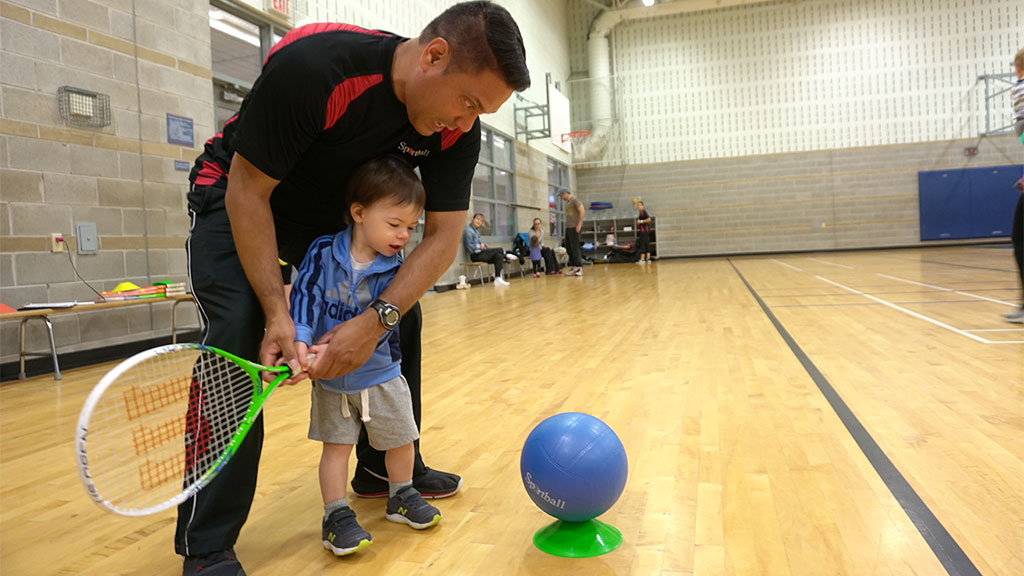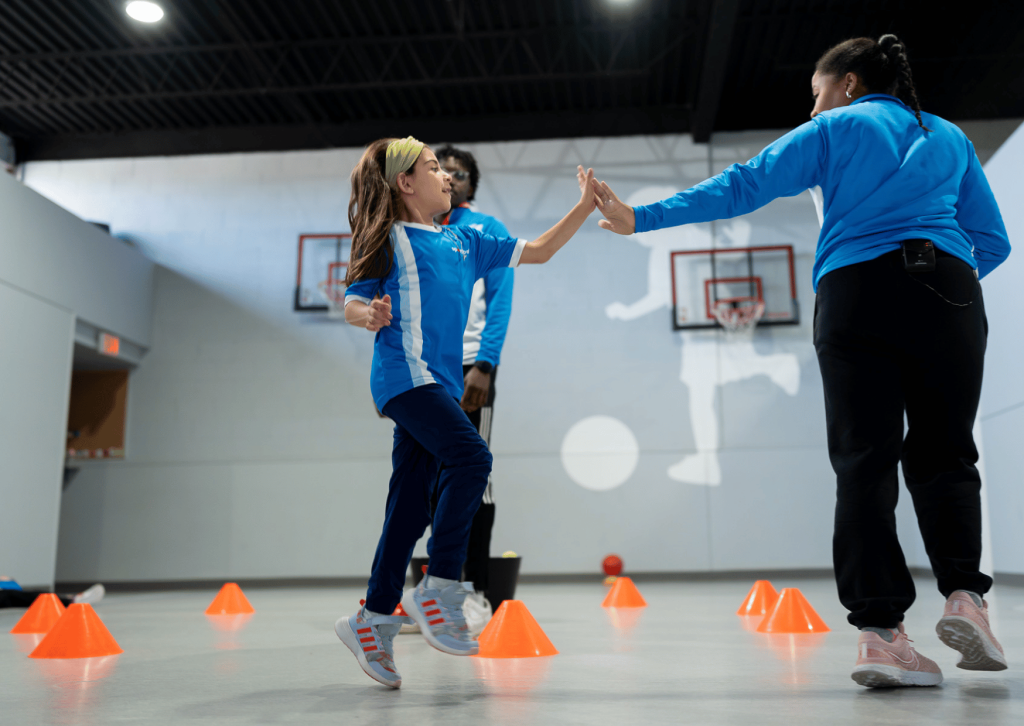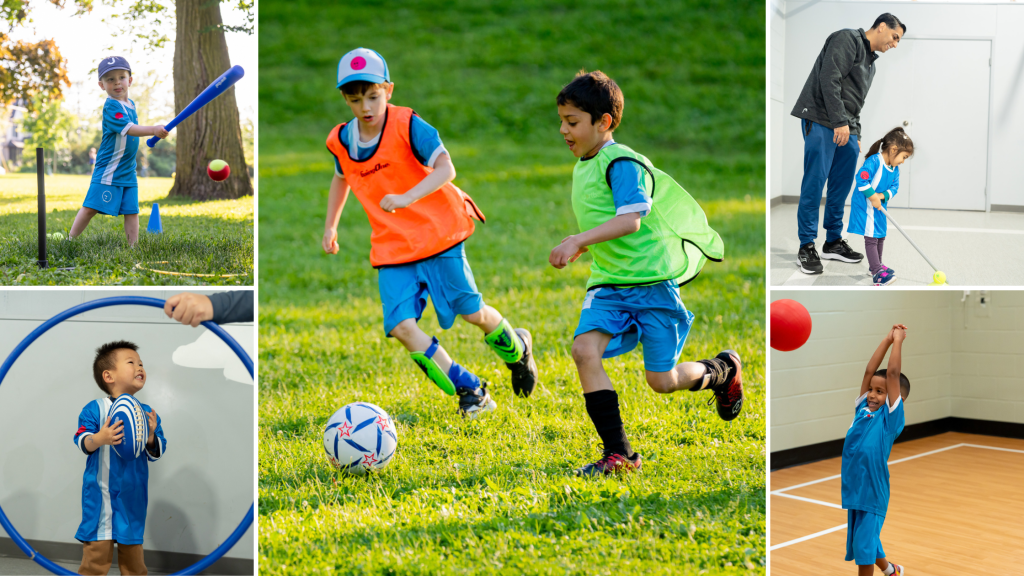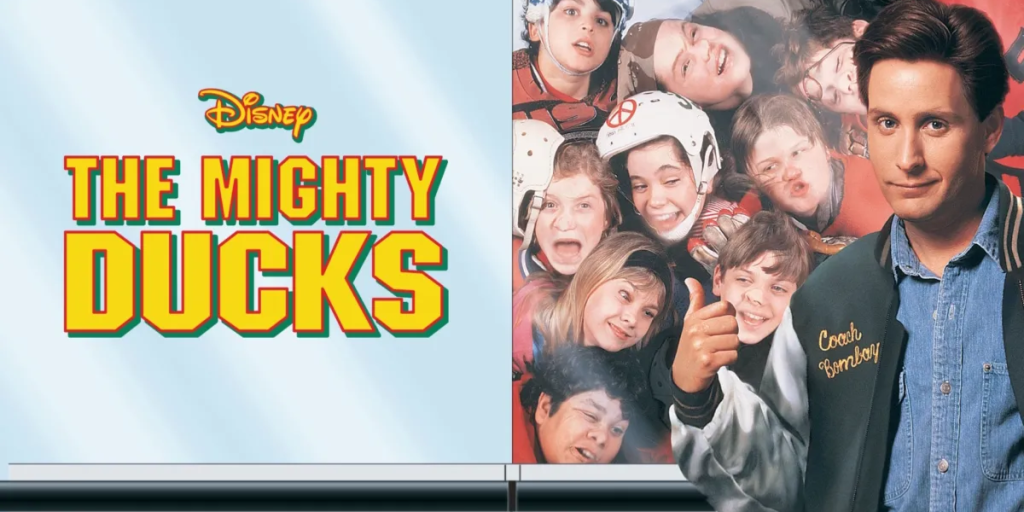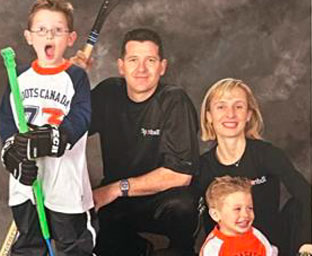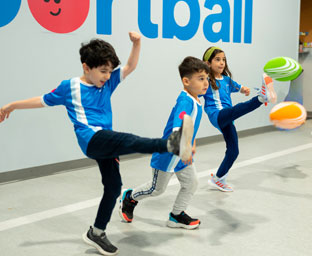Organized sport has the potential to offer both short and long-term benefits to participants – making it an attractive leisure activity to families with young kids. However, sport participation is at times controversial, when achieving elite performance and success in sport (i.e., being the ‘best’ or winning), takes precedence over children’s inherent enjoyment.
We are all familiar with a parent who spends a significant amount of time supporting their child’s seemingly endless training and competition schedule, sometimes at the cost of familial engagements or opportunities for their child to simply be a kid. We are also keenly aware of professional athletes’ childhood sport journeys, which are marked by wearing skates, being in the water, in the gym, or on the court from as early as they could walk. These success stories often encourage parents and children to pursue one sport from a very young age, driven by dreams of making it to the Olympics, being on a professional sports team, or achieving a lucrative sports scholarship.
The type of sport journey anecdotally described above is referred to as Early Specialization, which generally involves focusing on one sport from a young age to the exclusion of others, and participation in intensive training and/or competition on a year-round basis1. Early Specialization also entails ‘deliberate practice’, defined as:
…any training activity undertaken with the specific purpose of increasing performance (e.g., not for enjoyment or external rewards), requiring cognitive and/or physical effort, and is relevant to promoting positive skill development.2
The Problem with Early Specialization
While the trend towards Early Specialization in sport continues to be a popular one, sport and exercise psychology researchers have begun to challenge the notion that it is best or even healthy for children to focus exclusively on one sport from a young age. Subsequently, the first of the following two tables addresses a few of the common myths associated with Early Sport Specialization, while the second table acknowledges some of the risks:
MYTHS OF EARLY SPECIALIZATION | |
| DELIBERATE PRACTICE LEADS TO ADVANCED SKILL DEVELOPMENT | Deliberate practice in one sport may limit overall motor skill development and physical literacy, decreasing the likelihood that children will participate in other physical activities or sports in the future3 |
| EARLY SPECIALIZATION EXCLUSIVELY LEADS TO ELITE PERFORMANCE | There is a lack of evidence that early specialization is a requirement for elite performance. In fact, high level athletes have been found across a number of sports (i.e., basketball, hockey, soccer, and triathlon) who did not specialize until their teenage years1 |
RISKS OF EARLY SPECIALIZATION | |
| OVERUSE INJURIES | Early sport specializers rely on the same localized muscle groups, which increase the likelihood of experiencing concerted repetitive stress injuries over time1 |
| BURNOUT | High training loads and sustained pressure to perform at high levels may lead to reduced enjoyment, motivation, chronic stress, and burnout4,5 |
| ISOLATION FROM PEERS | Lack of diverse sporting experiences may limit exposure to a range of social settings and isolate children from peers and other beneficial recreational activities (i.e., music, arts)1,6 |
| SHORTER SPORTING CAREERS | Sport specialization before the age of 12 years is associated with increased dropout rates (exit from sport) and decreased athletic development over time1,4 |
Alternatives to Early Specialization
Given the mounting evidence that Early Specialization may be damaging to children’s future sport and physical activity endeavours, researchers have suggested parents consider an alternative sport pathway for their children, conceptualized as ‘Early Sampling’ or diversification. Early Sport Sampling entails just that: trying a number of sports concurrently. When pursuing several sports, researchers emphasize that sports should be non-competitive, involve unstructured free-play, and ultimately, be fun1. Finally, children should not be encouraged to specialize (choose one sport) until around 12- 13 years of age.
In line with efforts to offer children early diversification in sport opportunities, Multi-Sport programming at Sportball is a viable way for young children to sample a variety of sports in their early childhood. Multi-Sport classes at Sportball are play-based, non- competitive, and introduce children to eight different sports in one four-month session; effectively curbing many of the risks associated with Early Sport Specialization. Most importantly, and perhaps most appealing about Multi-Sport programming, researchers LaPrade and colleagues (2016) have asserted:
“Early multi-sport participation will not deter young athletes from long-term competitive athletic success.”
To learn more about Sportball’s Multi-Sport programs, or other kids sports programs, and where they might be offered in your area, please visit us at https://app.sportball.com/en/results?program=Multi-Sport.
Articles Cited:
1LaPrade, R. F., Agel, J., Baker, J., Brenner, J. S., Cordasco, F. A., Côté, J., … & Hewett, T. E. (2016). AOSSM early sport specialization consensus statement. Orthopaedic Journal of Sports Medicine, 4(4), 1-8.
2Ericsson, K. A., Krampe, R. T., & Tesch-Römer, C. (1993). The role of deliberate practice in the acquisition of expert performance. Psychological Review, 100(3), 363-406.
3Wiersma, L. D. (2000). Risks and benefits of youth sport specialization: Perspectives and recommendations. Pediatric Exercise Science, 12(1), 13-22.
4Fraser-Thomas, J., Côté, J., & Deakin, J. (2008). Examining adolescent sport dropout and prolonged engagement from a developmental perspective. Journal of Applied Sport Psychology, 20, 318-333.
5Goodger K, Wolfenden L, Lavallee D. (2007). Symptoms and consequences associated with three dimensions of burnout in junior tennis players. International Journal of Sport Psychology, 38, 342-364.
6Coakley J. (1992). Burnout among adolescent athletes: A personal failure or social problem? Sociology of Sport Journal, 9, 271-285.
7Côté, J, Lidor R, Hackfort D. (2009). ISSP stand: To sample or to specialize? Seven postulates about youth sport activities that lead to continued participation and elite performance. International Journal of Sport Exercise Psychology, 9, 7-17.
